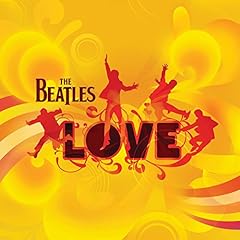:: Friday, October 24, 2003 ::
If you wanna make me very very happy...

...why not buy me this four-CD collection of punk classics for my birthday (Nov. 1)? This collection from Rhino Records becomes available on Oct. 28. But unfortunately, it contains no Sex Pistols tunes, thanks to that rotton John Lydon. Rhino originally wanted to call the box set "Ever Get the Feeling You've Been Cheated?" As this AP story explains:
For music trivia buffs, those were the words spoken into the microphone by Johnny Rotten as the Sex Pistols left the stage after their final concert before breaking up in 1978.
Then Rotten, born John Lydon, found out about Rhino's plans when he was interviewed this summer by a reporter from The Washington Post.
"It's a (expletive) insult to be using my quote to back up product that I have nothing to do with," he told the Post. "To my mind, that's fraudulent marketing, plain and simple. I don't care how much homage they pay to me in the liner notes. They want to use me from a distance and I find that just unacceptable."
Lydon conveyed the same message to Rhino, said Marc Salata, product manager of the box set.
Rhino was already disappointed because the Sex Pistols wouldn't license any of their songs for the project.
Even if you don't want to shell out the $51+ plus postage to buy it for me, you should buy it for yourself. And you should use this link so I can get a kickback from Amazon. Thank you for your patronage.
:: Andrew 13:28 + ::
...
:: Thursday, October 23, 2003 ::
Jesus Is a Punk
I've been working on this writing project about punk rock and Christianity. I'm feeling fairly comfortable with the intro now, so I'm posting it here for your comments.
I'm not certain whether I'll find a Christian publishing house for this or not. I may end up self-publishing, or making an e-book out of it, or abandoning it altogether, which would be a very punk thing to do.
Anyway, here's the intro, without any annotation. Your comments are appreciated.
Jesus Is a Punk I love the rituals of Catholicism. ... I mean, the mass is a magic ritual for God’s sake, it’s a transubstantiation, and the stations of the cross – I mean a crown of thorns? Getting whipped? It’s punk rock. - Jim Carroll
As someone who came of age in the 1970s, I have in my mind’s eye a certain image of punk rock as a sneering, defiant No to the established order of the rock-and-roll world. It’s an image that first appeared to me, and to the vast majority of Americans, sometime around 1977, in the form of alarming newscasts that depicted a new British Invasion. In our living rooms, we witnessed on the evening news concert footage of a gaunt, sneering British lad with severe cropped hair and a vacant, feral gaze, a ripped shirt hanging from his skeletal frame. We watched in shock as he shrieked into a microphone, proclaiming himself to be the antichrist, clutching his microphone stand in a choke hold. I see him now, a skinny figure careening along a dimly-lit club stage, leaning down to screech into the faces of spike-haired fans as they violently slam into each other and spit back at the menacing performer above them.
This is the image of punk embodied by a young John Lydon, aka Johnny Rotten. As the front man for the pioneering British punk band the Sex Pistols, he was punk’s most famous icon. To many of us, Rotten was the true sound and fury of punk rock. Taken as a whole, the Pistols, especially Rotten and his pal Sid Vicious, personified punk – a movement designed to shock and unsettle, a defiance for defiance’s sake. Whereas the protest music of the sixties raised a figurative fist into the air, punk lifted a single middle finger to the world.
This was the British Invasion of 1977, a photo negative of the first wave that brought the Beatles to American shores in the early 1960s. Gone were the Fab Four, with their mop tops and hordes of screaming fans. What landed on our shores in 1977 seemed more akin to the Four Horsemen of the Apocalypse. These punks from England would surely bring no good to our world. With Rotten belting out “Anarchy in the U.K.” at the top of his lungs – “I am an antichrist/I am an anarchist/don’t know what I want but I know how to get it/I want to destroy the passerby” – could the decline of western civilization be far behind?
But there’s a flip side to this Rotten image, and although it is in many ways even more disturbing than the visage of Rotten’s prancing, sneering antichrist, it also offers a spirit of hope – a hope that is, I believe, reflective of the true spirit of punk hidden below the scabrous exterior of Rotten and company.
This image, too, is from 1977, the year punk first registered on America’s pop culture radar. In this image, we see Joe Strummer, the gravel-voiced front man of the Clash, looking more like James Dean than Johnny Rotten, leaping from a Belgium concert stage to attack a ten-foot-tall barbed wire fence. He’s tearing at it with his bare hands, intent on breaking down the barrier between an inner court of fans – an “arena within an arena” – and the outer court of “less privileged” punks, the outsiders whom concert security had “herded like cattle” to the margins. With a street brawler’s tenacity that belies his own privileged upbringing, Strummer “streaks straight to the fence, and with his bare hands he is pulling and tugging at the bastard as hard as he can.” Immediately a bank of security guards are on his back, yanking Strummer from the wall of wire, and just as quickly a mass of fans rush the guards, struggling to pry them off Strummer.
This moment, captured by a writer for the punk fanzine Zig Zag, didn’t make the newsreels. But it gives us another view of the punk movement – an urgent, aggressive Yes to Rotten’s equally aggressive, angry No. Strummer, as defiant as any punk around, channeled that defiance for a purpose more noble than the simple, self-indulgent nihilism the Sex Pistols were known for. As his actions in Belgium that night demonstrated, Strummer saw punk as a redemptive movement, a means to further the causes of social justice. This same egalitarian, revolutionary spirit comes through loud and clear in much of the music of Strummer’s band, the Clash. Hidden within the lyrics of many Clash songs – those penned by Strummer and Clash co-founder Mick Jones as well as cover tunes of styles ranging from reggae to rockabilly – were seeds of something much greater than a call for anarchy or nihilism. While Rotten sang of no future, Strummer envisioned a movement that could tear down walls.
Parallel lines
Joe Strummer was one of punk’s most socially conscious figures. Writing music that challenged England’s social order, he and the Clash drew attention to the poor, the downtrodden and the underprivileged – society’s outcasts herded into the outer court. Strummer probably never imagined himself as a messiah figure, even in his most grandiose moments. But his assault on that barbed-wire barrier in Belgium resonates with the atoning work of Jesus. Strummer’s attack on a wall of separation that divided his fans may be only a dim shadow of Jesus’ suffering on the cross at Calvary, but there is a strong parallel between the two events. As the Apostle Paul wrote, Jesus, through his life, death, burial and ultimate resurrection, attacked a “dividing wall of hostility” (Ephesians 2:14, NIV) that was as real as any barbed-wire barricade, and even more divisive. The barrier Jesus fought against separated “non-Jewish outsiders and Jewish insiders” (see Ephesians 2:11-16, Message). Jesus’ destruction of that wall brought Jews and non-Jews together into a unity of spirit as part of the ultimate reconciliation of God and humanity. By tearing down that wall, Christ opened the way for all of humanity – not just a privileged few – to gain access to God.
Perhaps Strummer was simply trying to help the masses get a better view of the show. But his efforts were symbolic as well, for in attacking that ten-foot fence, Strummer connected the rebellious, anti-establishment, anti-elitist ethos of punk with a more universal theology that underpins the Christian faith – a theology as practiced by Jesus and preached by Paul. Rock critic Greil Marcus wrote in 1978 that it was “not hard to imagine [Strummer] ripping down a fence separating his band from its audience. A joyful loathing of such elitism is what kicked off the English punk revolt in the first place, and no band has tried harder, or more self-consciously, to live up to that revolt, to keep its spirit whole, than the clash.” A similar anti-elitism practiced by Jesus – his welcoming of the dispossessed, such as women, the poor and the sick, into His fold – forms the foundation of the early Christian movement.
So while the media painted punk as a raucous, out-of-control, self-destructive music form – and shoved Johnny Rotten to the top of the mosh pit of pop culture, leaving him to body-surf along our collective consciousness – Joe Strummer and the Clash sang the B side of this record. Punk is not just the story of Johnny Rotten – although Johnny Rotten is certainly part of the story, and his verbal assaults on hypocrisy are as prophetic in their own way as Jesus’ dressing down of the Pharisees. There is a deeper spiritual aspect to punk, a hope-filled Yes to punk’s superficial, hollow No, and that’s the song we find on Side B. The flip side of punk’s sneering facade is a theology that is authentic, but unsettling. How could it be anything else?
‘Throw out the rule book’
It’s been nearly three decades since Rotten, Strummer and dozens of others ripped the veil of pop culture to expose the world to the seething underground movement of punk. From its shadowy beginnings, punk blasted onto the music scene in the mid-1970s, then seemed to burn out within a few short years. The Sex Pistols crashed and burned almost as quickly as they had ascended from obscurity. By 1978, just a year after gaining notoriety in the UK, the band imploded in San Francisco, on the last stop of their American tour. Soon afterward, Sid Vicious, the Pistols’ alleged bass player, was accused of murdering his girlfriend, then died of a drug overdose. By the time the ‘80s started, many music critics had pronounced the punk movement dead; it had been overtaken and swallowed up by the more palatable – and profitable – “new wave” sound. The Clash managed to ride the wave and score a few hits, as did Blondie – one of the few bands to emerge from New York’s club scene with any pop hit potential – but punk pioneers like the Ramones, Buzzcocks, the Damned and Dead Kennedys weren’t able to break the corporate stranglehold on pop music. Punk’s railing against the powers that be in the music industry appeared to have failed.
A quarter of a century later, we know better. Punk’s influence in the world of music, fashion and culture has never been greater. If you don’t believe me, make a trip to your nearest shopping mall and step in to a fashion store there called Hot Topic. This retailer, a fixture at suburban shopping malls throughout the United States, is cashing in on the punk revival, selling teens T-shirts of punk pioneers like the Ramones, Dead Kennedys, Clash and Sex Pistols alongside Kermit the Frog underwear and Rainbow Brite shoelaces. The company expected to earn $42.9 million in 2003 on $545.8 million in sales.
But punk’s influence doesn’t begin and end in the shopping mall. Punk’s influence on music, from the “secular” to the spiritual, is apparent in every rock band from Audioslave to Audio Adrenaline, and especially in the styles of new faux-riot grrl singers like Avril Lavigne (a Shania Twain-in-waiting before handlers turned her into a “skater punk”; her first album sold 12 million), Pink (a former rhythm and blues crooner revamped into a bad girl, complete with torn fishnets) and Kelly Osbourne (daughter of Ozzy). Even the corporate world uses punk to push product. When the Clash’s punk anthem “London Calling” is used in Jaguar television ads to sell an “entry-level luxury” model, as it did in 2002, the Ramones’ “Blitzkrieg Bop” underscores TV ads for Nissan’s Pathfinder, and tunes from proto-punks Lou Reed and Iggy Pop show up in promos for the NFL (Reed’s “Perfect Day”) and Carnival Cruise Lines (Pop’s “Lust for Life”), it’s a good sign that punk has gone mainstream. Yet another indicator of punk’s descent into the belly of pop culture: “punk rock aerobics ... coming to a nightclub near you,” in which clubbers sweat to the oldies of the Sex Pistols.
Does this mean punk has been reduced to merely fashion, commercial jingle, and MTV imagery? Has punk sold its soul to the devil of consumerism? Despite the crass commercialism rampant in today’s pop culture, the theology of punk espoused and embodied by Strummer and others is alive and well. Punk doesn’t survive merely because Nissan or the NFL keep it on the airwaves. Rather, the corporate world discovered something punks have known for decades – that the message of punk isn’t dead – and, like good corporate citizens, are merely trying to cash in on the trend.
After nearly three decades, punk music continues to attract a large and devout fan base. The reason, according to Lars Frederiksen, guitarist/singer/songwriter for the San Francisco punk band Rancid, has much more to do with punk’s theology than its commercial success. “You throw out the rule book in punk,” Frederiksen told USA Today. “That’s the whole point. ... I love punk’s cultural diversity. You can be gay or straight, black or white, male or female or eunuch.”
That’s a pretty nice paraphrase of one of the Apostle Paul’s more famous passages from the New Testament Book of Galatians. In discussing punk’s continuing popularity despite the many reports of its death, Frederiksen – as much an apostle of Strummer as Paul was of Jesus – echoes the New Testament ideal of radical equality, about which Paul wrote:In Christ’s family there can be no division into Jew and non-Jew, slave and free, male and female. Among us you are all equal. That is, we are all in a common relationship with Jesus Christ (Galatians 3:26-28, The Message).
This is the egalitarian message of the New Testament message. It’s a message that is often overlooked, even ignored, by major segments of institutional Christianity. But punk, Frederiksen says, pushes equality to the forefront, and that’s one reason it remains popular, even in this era of crass commercialism. This egalitarian ideal is popular not only among punk’s fan base, but also in the punk music business. “Despite its belligerent stance and rancorous vocabulary, the punk cosmos is nearly free of the rivalries that plague rock, pop and rap.”
A Christian Punk, or a Punk Christian?
What is it, exactly, that drove Strummer to assail that barbed wire partition? And why does Frederiksen proclaim the punk ideal of egalitarianism amid a culture of vapid commercialism? Can it be that the lively spirit that energizes the music of the Clash, Rancid and a host of other punk performers has something in common with the spirit of Christ? Can the prophetic utterances in songs like the Clash’s “Clampdown,” Rancid’s “Fall Back Down” or Elvis Costello’s remake of Nick Lowe’s “(What’s So Funny ‘Bout) Peace, Love and Understanding” embody the same teachings Christ proclaimed to His followers? Can it be that the “spirit of punk” is the same spirit the Apostle Paul reinforced in his writings to the early church?
Could it be that Jesus and Paul have more in common with the punks than with many Christians in our world today?
This is a question that has haunted me since I first discovered the soul-saving power of Christ in my own life.
As someone who was a fan of punk and its offspring, the new wave music of the late 1970s and early 1980s, I’ve wrestled with reconciling my love of this music, in all its messy, angry, amateurish, nihilistic glory, with my desire to be a follower of Jesus. Soon after being “born again” at age twenty-four in the mid-1980s, when almost everyone had concluded that punk was dead, I became part of a wonderful, conservative evangelical church. A newcomer to the Christian faith, rootless and unschooled in matters of religion, I learned at the feet of well-meaning folks who were clueless of the power of punk music. Intent on helping me rid myself of all the “worldly” vestiges of my old life, these friends – and they are friends to this day – helped me turn from addictions to alcohol and other unhealthy habits. I am grateful for their counsel and prayers.
In the process, however, I also unwittingly set sail on a course that led me to take some actions that in hindsight can only be considered as rash as cutting my own hair. I began to view “secular” things through a conservative evangelical filter. One weekend, in a fit of self-righteousness inspired by my newfound cultural mores, I abandoned punk altogether. I wanted to serve Jesus zealously, and having learned from the Beatitudes that I could not serve two masters, I put my entire collection of rock and roll records in a garage sale. Goodbye, punk. So long, Ramones, Clash, Blondie, Elvis Costello, Talking Heads. Farewell, too, to the lesser lights of rock – the Cars, Bob Seger, Pink Floyd, Pat Benatar, the Knack. I had decided to follow Jesus. No turning back.
Now, if I had been any kind of Christian (and any kind of punk), I would have smashed up all of those precious LPs. The very act of foisting them on an unsuspecting public only serves to illustrate the depths of my hypocrisy. Not only was I unwilling to annihilate these instruments of impurity, but I also had the gall to exchange them for cash. In the end, it turns out I bowed to Master Mammon, after all.
Nearly two decades since that time, my love of punk has not diminished. Nor, I believe, has my love of God. I have come to realize that the two, punk and Jesus, are not mutually exclusive. One can love both.
This is a book about Jesus, the punks, and my love for both. It’s a book about punk’s prophetic words to our culture – words that can bring healing to many who hurt. It’s also an attempt to emulate the works of Strummer and Jesus. That is, to tear down a wall that separates two distinct cultures – the popular culture influenced by the punk revolution, and the church culture in dire need of an infusion of punk-inspired spirit. But mostly, it’s a book of musings on the spiritual connections between punk music and culture and authentic Christian spirituality.
Sex Pistols and sex scandals
This notion of joining punks and Christians together is no doubt a radical concept to some of you. To others it is no doubt offensive, if not downright blasphemous. I’ll agree that on the surface, it’s an unusual combination, this mix of punk and Jesus. But I hope you’ll join me in this journey beneath the surface of things. I hope you’ll join me to look beneath punk’s sneering veneer and cultural Christianity’s moralistic posturing to see just how much we have in common.
Yes, punk and the church are two topics rarely discussed in the same breath. And punk has gobbed our culture with some pretty nasty stuff. We can cast stones at punk for giving us Mohawk haircuts, bad manners, body piercing, neo-Nazi skinhead extremists, slam dancing, songs that glorify sniffing glue and teenage lobotomies, and bands like A Flock of Seagulls, to name just a few evils. Beyond that, some readers may wonder how such a vile musical genre – a genre headed by bands and people with names like Vicious, Rotten and Rancid – could offer anything of value to the church.
That’s a fair question. But it also reminds me of a question the disciple-in-waiting Nathanael asked a couple of followers of a guy from the seedy, dead-end town of Nazareth. “Nazareth! Can anything good come from there?” (John 1:46, NIV).
I can’t say whether Jesus approves of every aspect of punk’s legacy. If he’s anything like me, He would prefer to see fewer bad haircuts, less extreme body modification, and an end to gobbing and on-stage vomiting (which are pretty much passe these days anyway). He might favor warning labels on certain punk CDs that cross a line. He might not think much of Johnny Rotten’s infamous comparisons to the antichrist. (But Jesus no doubt was in on the joke, and foresaw the day when Rotten would reclaim his given name, John Lydon, and retire to “a life of genteel wealth in California, with his German heiress wife.”) Moreover, Jesus, well acquainted from his own life experience with the way the privileged look down their noses at those who are different – whether those outcasts hail from Nazareth or the streets of London – is probably much more willing to overlook the excesses of punk and see the seeds of godliness that lie beneath the surface. Jesus is more likely to overlook the spiked hair, crass lyrics and snarling facades and embrace punk’s egalitarian spirit.
Recall that throughout the New Testament, Jesus sided with the rebels and the dispossessed. He hung out with tax collectors and the prostitutes, healed lepers, fed the hungry and helped the dispossessed. He ministered to and among the outcasts of His day. Jesus also criticized the religious leaders of the time, exposing their hypocrisy in ways as disturbing and uncomfortable as any punk tune. So, too, punk criticizes existing institutions of government, religion, politics – even the music industry itself.
My hope is that, in reading this book, you too will see something of value to you and the church in punk’s messages. For despite its excesses and many, many shortcomings, punk offered something of value to the world – something that keeps its spirit alive after all these years.
:: Andrew 08:36 + ::
...
:: Tuesday, October 21, 2003 ::
Queer Eye viewer turns gay, sues
A fan of Bravo's hit show Queer Eye for the Straight Guy is suing the network, claming that repeated viewing of the show turned him into a homosexual, sources say. The plaintiff, 32-year-old Manhattan resident John Elron, is seeking $2 million for pain and suffering, punitive damages, and "lost reproductive opportunity."
From Confusion Road (it's only satire, folks), via The Eye Opener.
:: Andrew 07:49 + ::
...
Just as He is...Much of our difficulty as seeking Christians stems from our unwillingness to take God as He is and adjust our lives accordingly. We insist upon trying to modify Him and bring Him nearer to our own image.
A.W. Tozer, The Pursuit of God
From today's Christian Quotation of the Day
:: Andrew 10:41 + ::
...









 Simon Dawes,
Simon Dawes, 








































